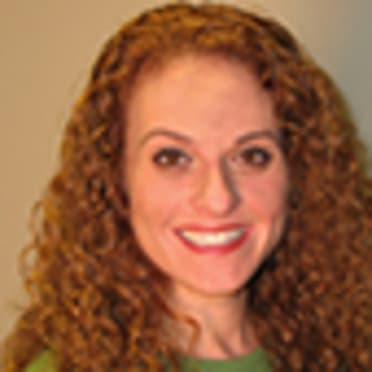Kim Ng is four months into her tenure as general manager of the Marlins, but the attention her historic hire drew has yet to fade into the background. Ng understands that part -- as the first woman GM hired among any of the four major sports, this was a very big deal for women across the entire sports landscape.
When will Ng be thought of as simply “GM” and not “female GM”?
“I think it’s going to be a bit,” Ng said during “MLB Tonight: A Conversation,” presented by CohnReznick, which aired Wednesday night on MLB Network. “I think the novelty is just so strong right now. Hopefully in a year or so people will just think of me as a general manager. But who knows? It’s tough to say.”
The two-hour Network special, hosted by Lauren Shehadi, included interviews with nine women across various areas of the baseball industry.
In addition to Ng, the group included three high-ranking executives: Major League Baseball chief people & culture officer Michele Meyer-Shipp, Yankees senior vice president and assistant general manager Jean Afterman and Red Sox executive vice president and assistant general manager Raquel Ferreira.
Player development was represented by two coaches: Yankees Minor League hitting coach Rachel Balkovec and Cubs Minor League hitting coach Rachel Folden. The media contingent included three women: The Athletic national writer Britt Ghiroli, San Francisco Chronicle reporter Susan Slusser and Yankees radio analyst Suzyn Waldman.
Among the topics discussed were the importance of diversity and representation and the challenges women executives and people of color face once they do get that “seat at the table” with their male colleagues.
“When you are an underrepresented group member, whether you’re a woman in the room or you’re the only person of color in the room… for me, often, I was the only one of both in a room. And that could be a little unnerving, at times,” Meyer-Shipp said.
Early in her career, she would wonder, “Should I be here? Do I have permission to speak?”
Then she’d remind herself -- yes.
“You earned your seat at this table, you were invited to this meeting,” Meyer-Shipp said. “Speak up, use your voice. Every now and again, that little imposter still shows up. I think that’s one of those heavy weights that for anyone who is in an underrepresented group when they’re in a space with a majority group -- it’s something we have to learn how to navigate throughout the course of our careers.”
Afterman and Ferreira each praised their Yankees and Red Sox colleagues for providing an inclusive environment and encouraging them to ignore the outside noise from detractors who may not want to accept a woman in the industry.
“It’s outside of the organization where people just assume that you are a coach’s wife, or a player’s wife,” Afterman said. “In a public event, you pull out the championship ring and somebody will say, ‘Oh, how did you get that? Whose wife are you?’ I always have to tell them, I [bleeping] earned it.”
Added Ferreira: “I say, ‘Which of my four [rings] would you like to see?'”
Harassment and gender bias in the media were also discussed. To grasp the progress that has been made, and how much work there still is to be done, there must first be an understanding of the poor treatment women received decades ago.
Waldman has moving stories about incredible kindness extended to her by players such as Dave Winfield and Jesse Barfield, and today, she’s revered by Yankees players. But she faced extreme hostility when she first landed a hosting job with WFAN in 1987, the year the station launched and became the first 24-hour sports radio station in the United States.
Waldman spent considerable time in press boxes that year. Not a single person talked to her the entire season.
“It’s really strange to realize, when you’re sort of close to middle age, that half the world thinks you’re an idiot because you’re female,” Waldman said. “I’d never had that in my whole life. I grew up knowing I could do whatever I wanted. It was kind of startling to realize people did not want you there, solely because you’re female.”
Jumping ahead to current times, Slusser, a former president of the Baseball Writers’ Association of America who has covered Major League Baseball for three decades, and Ghiroli, who was part of the team at The Athletic that broke the story about Angels pitching coach Mickey Callaway harassing women, spoke at length about harassment issues that persist in today’s game.
“I think people just expect that this is the price of doing business; this is the price of being a woman in a male-dominated profession,” Ghiroli said. “I think now we’re at the point where women are saying, ‘Well, why? Maybe we shouldn’t have to put up with this, maybe this isn’t right.' Just because it happened before doesn’t mean it can continue to keep happening.”
“I think there are more allies,” Slusser said. “I hear from top executives with teams, and with Major League Baseball, about what we can do. Can we reach out to people? And how do we make sure that people feel comfortable reporting incidents, letting us know that they could have anonymity and that a full investigation will be completed?
“My concern is getting more women and persons of color into the game. I think the more women in upper-level positions in baseball -- and there are a lot of them, and they are fantastic -- but I think there will be more awareness, and probably more competent steps would be taken to prevent that kind of thing.”
